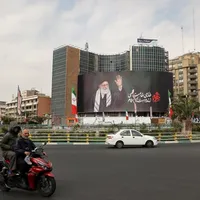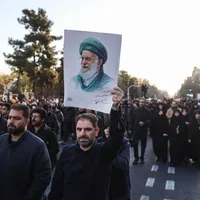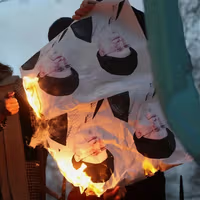Bolton fell out badly with President Donald Trump since serving in his first term and has become a strident critic of the populist president.
The approval of charges by a federal grand jury in Maryland marked the latest legal moves by the administration against political adversaries.
The indictment, which draws upon investigations which gained pace under the presidency of Joe Biden, accuses Bolton of sending over a thousand pages of so-called diary notes about his duties in 2018 and 2019.
Bolton, prosecutors allege, used his AOL email account and an insecure messaging app to transmit some materials to two unnamed people who lacked security clearances.
Those messages, the indictment added, included “national defense information” including top secret classified material.
On or around July 6, 2021, the indictment alleged, a Bolton representative contacted the FBI, saying, "evidently someone has gotten into Amb. Bolton's personal email account and that it looks as though it is someone in Iran."
The hacker allegedly taunted Bolton according to an email forward to the FBI by the representative, saying, “This could be the biggest scandal since Hillary’s emails were leaked, but this time on the G.O.P side! Contact me before it’s too late," in a reference to the Republican party.
On or around August 5, 2021, the indictment continued, Bolton received another email by the hackers saying, "OK John ... As you want (apparently), we'll disseminate the expurgated sections of your book by reference to your leaked email".
Bolton, prosecutors said, did not inform the FBI that the contents of the hacked emails could have been classified.
As national security advisor, former US ambassador to the United Nations under George W. Bush and as a public commentator, Bolton has been highly critical of Tehran and has advocated a hard line against its theocratic leadership.
“He’s a bad guy,” Trump told reporters at the White House on Thursday when asked about Bolton. “That’s the way it goes.”








